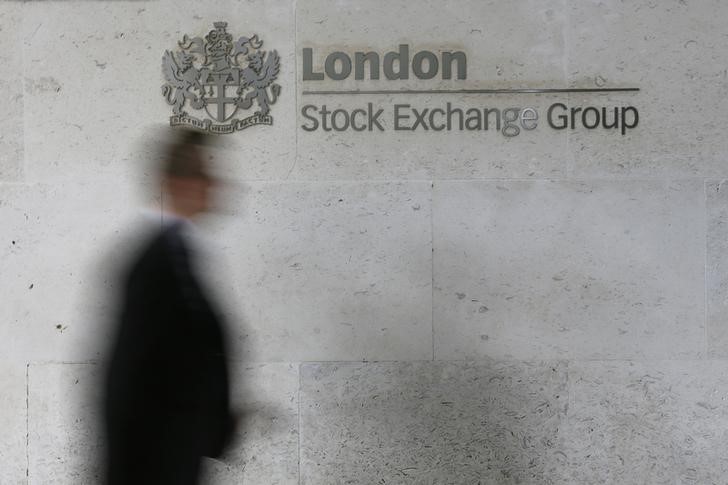By Danilo Masoni
MILAN (Reuters) - The UK's top share index inched higher on Monday after the resignation of Brexit minister David Davis had little immediate effect on Prime Minister Theresa May's hold on power, fuelling talk that a soft Brexit was more likely.
The FTSE (FTSE) was up 0.15 percent by 0841 GMT, joining a bounce in global equity markets, which continued to benefit from Friday's strong U.S. jobs report. The index was on track for its third straight day of gains.
Davis, who resigned to protest at May's strategy for leaving the European Union, said on Monday said he would not encourage his colleagues to try to oust May and did not want to see her replaced.
"Investors believe she will keep hold of the reins", London Capital Group analyst Jasper Lawler said.
Analyst said Davis's resignation should make it easier for May to implement a softer Brexit, under which Britain retains a close trading relationship with the EU, although caution over possible new challenges to her leadership remained.
Top gainer on the FTSE on Monday was Just Eat (L:JE), up 2.3 percent after RBC upgraded the stock to top pick.
"Amidst an increasingly competitive landscape, we believe Just Eat is well positioned owing to its market leading positions and strong customer loyalty," they said in a note.
Materials stocks provided the biggest boost to the FTSE with mining company BHP (L:BLT) up 1.9 percent after Reuters reported that BP was set to buy its U.S. onshore shale oil and gas assets after on offer worth more than $10 billion. BP (L:BP) fell 0.9 percent.
Other mining stocks also rose as copper prices rebounded from one-year lows.
Mid-caps precious metal miner Centamin (L:CEY), however, fell 6.6 percent after second-quarter gold production fell, disappointing investor expectations.
Jefferies said Centamin will need a significant pick-up in the second half to hit the mid point of its full-year gold production guidance.
Inmarsat (L:ISA) rose 2.4 percent, shrugging off news that U.S. satellite group EchoStar (O:SATS) does not intend to make an offer for the British peer, which had rejected its $3.2 billion takeover approach.
Traders cited hopes for another suitor and possible short covering.
